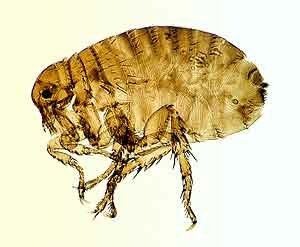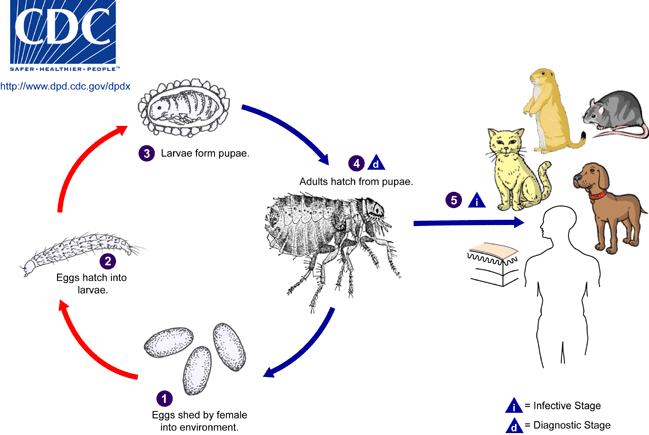Human flea (Pulex irritans)
 Human flea (Pulex irritans). Pulex irritans is a cosmopolitan species from the aphaniptera group occurring widely in the world. It attacks both people and animals (dogs, cats, pigs, foxes, hens, chickens, cows). It can grow 2 – 4 mm long. Its head is round. The development of this species lasts for 4 to 5 weeks in summer and 6 to 7 weeks in winter but in severe humid and cold conditions this period might last even a year.
Human flea (Pulex irritans). Pulex irritans is a cosmopolitan species from the aphaniptera group occurring widely in the world. It attacks both people and animals (dogs, cats, pigs, foxes, hens, chickens, cows). It can grow 2 – 4 mm long. Its head is round. The development of this species lasts for 4 to 5 weeks in summer and 6 to 7 weeks in winter but in severe humid and cold conditions this period might last even a year.
The larvas and mature individuals are very demanding when it comes to temperature and humidity (humidity-70-90% and temp.-18-27 ºC). Fertilization might take place even after the female laid eggs. For 3 to 10 days after sucking blood from the host, the females lay eggs. The best place in the flat are cracks in the floor,carpets, old mattresses, the places where dogs or cats sleep and in public places like: cinemas, discos and gyms. It feeds with blood, sucking it directly from vessels, in short periods, several times a day.
A flea bite is not dangerous to most people but some individuals might suffer from skin lesions. The bite spot can be blue, swollen and covered with pimples. Scratching causes an inflammatory state. The lesion lasts for about 3 days. Frequent flea bites cause skin damages.






